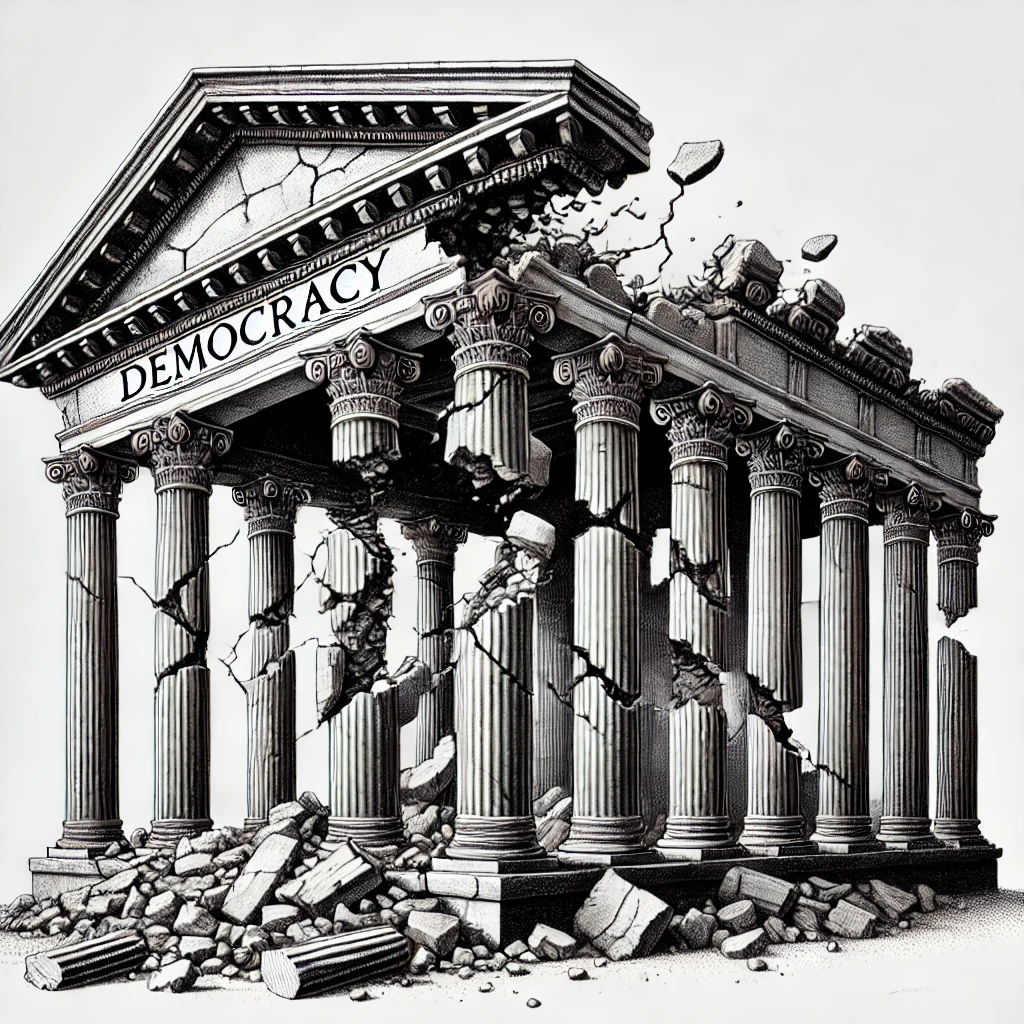What is a Democracy?
We all know what a Democracy is but still for those living under a rock democracy let’s define it. Democracy, derived from the Greek words “demos” (people) and “kratos” (power or rule), is a system of governance where the power to make decisions lies in the hands of the people. Typically, this is achieved through elected representatives who act on behalf of the citizens. Democracies are characterized by free and fair elections, the rule of law, the protection of human rights, and the equal application of laws to all citizens. The principle of majority rule is central to democracy, ensuring that the voice of the majority shapes the policies and leadership of a country.
A Brief History of Democracies
The concept of democracy has ancient roots, with the first known form appearing in Athens around the 5th century BCE. This early version of democracy was direct, meaning that citizens participated directly in decision-making. However, the idea of representative democracy, where citizens elect officials to make decisions on their behalf, became more widespread in modern times.
In the 17th and 18th centuries, the Enlightenment brought about a renewed interest in democratic principles. The American Revolution (1775–1783) and the French Revolution (1789) were key historical events that promoted the idea of democracy, leading to the establishment of the United States Constitution and the Declaration of the Rights of Man and of the Citizen in France. These documents laid the groundwork for modern democratic states around the world.
Democracies That Have Fallen in Recent Decades
Despite its widespread adoption, democracy is not invincible. Numerous democracies have crumbled in recent decades due to internal conflicts, corruption, and authoritarian takeovers. Here are a few notable examples:
- Venezuela: Once a thriving democracy, Venezuela has seen its democratic institutions erode under the leadership of Hugo Chávez and his successor, Nicolás Maduro. The country has faced severe economic crises, human rights abuses, and a collapse in the rule of law, leading many to describe the current government as a dictatorship.
- Turkey: While Turkey was long considered a model of democracy in the Muslim world, recent years have seen a significant decline in democratic norms. President Recep Tayyip Erdoğan has consolidated power, suppressed dissent, and undermined the independence of the judiciary, leading to concerns about the future of democracy in Turkey.
- Egypt: After the Arab Spring in 2011, Egypt experienced a brief period of democratic governance. However, the military coup in 2013 led by General Abdel Fattah el-Sisi effectively ended the democratic experiment, and Egypt has since returned to authoritarian rule.
The Flaws of Democracy: Is It Doomed to Fail?
While democracy is often hailed as the best form of governance, it is not without its flaws. Critics argue that democracy is inherently unstable and prone to failure in the long run. One of the key issues is that democracy can lead to corruption, as seen in countries like the United States, the United Kingdom, and India.
In these nations, the influence of money in politics, lobbyists, and special interest groups often skews the democratic process. Elections, instead of being a reflection of the people’s will, become contests of who can spend the most money or secure the most influential backers. This leads to a government that serves the interests of the wealthy elite rather than the average citizen.
Moreover, democracy can weaken law enforcement as policies and laws are often shaped by vote banks rather than the rule of law. Politicians, in their bid to secure votes, may prioritize populist measures over long-term solutions, leading to a deterioration in governance. In extreme cases, this can result in the breakdown of social order, as laws are bent to cater to specific groups rather than being applied equally to all.
Countries like the United States, the United Kingdom, and India offer prime examples of these flaws. In the U.S., the political system has become increasingly polarized, with both major parties more focused on winning elections than on governing effectively. In the U.K., Brexit has exposed deep divisions within society, with populist leaders exploiting these rifts for political gain. India, the world’s largest democracy, has seen rising concerns about corruption and the erosion of democratic norms.
Conclusion: The Uncertain Future of Democracy
As the examples above illustrate, democracy is far from a perfect system. While it offers a framework for freedom and participation, its vulnerabilities to corruption, populism, and internal conflict raise questions about its long-term viability. As we look to the future, it remains to be seen whether democracy will adapt and survive or whether it is, as some critics suggest, doomed to fail.





